Post #156. This post is 640 words, 3 minutes to read.
It is followed by a graphic commentary on the issue produced by the HIV Legal Network.
By Victoria Carmichael, JD Candidate at Queen’s Law.
Opioid-related overdoses are on the rise. Over the last three years, Ontario had an 81% increase in reported opioid overdoses. In 2019, more than 21,000 suspected opioid-related overdoses occurred in Canada, resulting in 3,823 deaths. This is a national public health emergency.
As one response to this crisis, the Canadian government passed the Good Samaritan Drug Overdose Act, encouraging people to report or intervene in overdose situations by exempting them from criminal charges. Most of the time a witness is present at overdose emergencies, but an Ontario study reported that in only 46% of cases was a call made to emergency services. The primary barrier to calling was the fear of police and potential criminal charges, like drug possession.
Who and What is Protected Under the Law?
The Good Samaritan Act applies to anyone who requests emergency support during an overdose, including any witnesses or the person requiring urgent medical care. It applies whether a person leaves the scene before help comes or remains at the scene.
The Act exempts you from charges you may otherwise face for possession of a controlled substance (drug) for your own use. The Act can also protect you from violations of the conditions of your parole, bail, probation or conditional sentence for that simple drug possession charge. These are situations that would often arise at an overdose situation.
However, this Act does not provide protection against:
- Charges for trafficking or producing illegal drugs;
- Other offenses outside of drug possession;
- Any outstanding arrest warrants; or
- Violating conditions of your parole, bail, probation or conditional sentence for offenses outside of simple possession.
Issues with the Current Regime
Janet Butler-McPhee and Sandra Ka Hon Chu of the HIV Legal Network partnered with Professor Emily van der Meulen on a study looking at the Good Samaritan Drug Overdose Act and whether it is working as intended.
One main finding of their study was that participants overestimate the protections offered by the law. Many participants expressed that the law was a ‘blanket’ protection, stating ‘they can’t touch you if you’re at an overdose.’ However, this is mistaken and can result in negative consequences for the individual, resulting in criminal charges.
Participants also thought the police did not fully understand the law. The comic below illustrates one of the authors’ key findings: that police frequently respond to and attend overdose calls and may treat others on the scene as criminal suspects. This leads to skepticism from those involved in the overdose: ‘the police always have an ulterior motive’.
Future Directions
The HIV Legal Network reports important considerations:
- Police should refrain from attending an overdose unless the person calling 911 specifically requests their presence. Uniformly training all first responders that attend overdose scenes could protect people’s rights without risk to those overdosing. The study recommends mandatory training of the Good Samaritan law for all emergency responders and police officers.
- The Good Samaritan Act could be amended to provide immunity to other criminal offences. A blanket, easy-to-understand protection would encourage people to seek help in emergencies.
- Ultimately, decriminalization of simple drug possession could be more important than any specific reform of the Good Samaritan Act. The criminalization of simple possession in Canada contributes to a general mistrust of the Good Samaritan law and its enforcement by police.
Save a Life
If you witness a drug overdose, you should:
- Call for emergency help (remember your protections from simple drug possession under the Good Samaritan Act);
- Carry naloxone to use if you suspect an opioid overdose (naloxone kits are available at most pharmacies. A prescription is not needed);
- Provide first aid, including rescue breathing (CPR), if necessary, until emergency help arrives;
- Stay calm and reassure the person that help is on the way.
Back

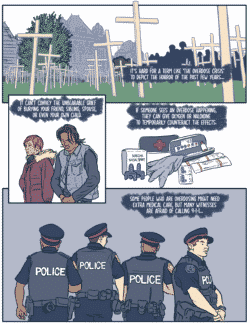
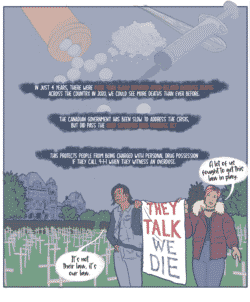
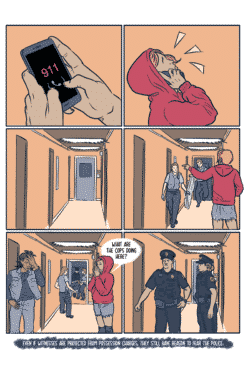
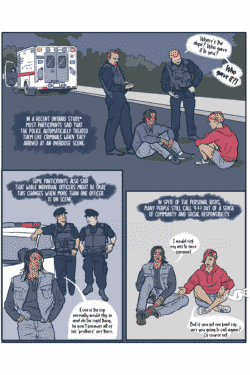
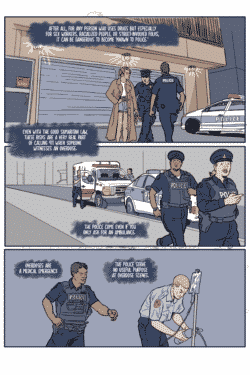
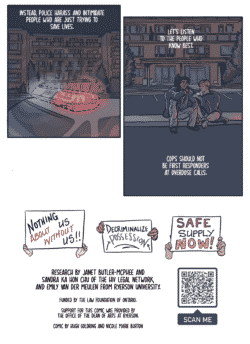
Comments are closed here.